Lori Stanley Roeleveld's Blog, page 56
June 1, 2015
The Command You’ll Break in Bed Tonight
 I had a very productive time of worrying today.
I had a very productive time of worrying today.
Truly, it was a work of art!
I spent an hour or two worrying about my children and their lives have definitely shown improvement. I spent another hour fretting over our finances and, guess what? Big difference in our bank account, baby!
Finally, I invested quality time getting worked up about my weight, health, marriage and my husband’s career. I can now report that I’m thinner and stronger, and my husband’s business prospered. Tonight, I’ll put in another hour or two of quality worry in bed. My husband even promised me a romantic evening in gratitude for all the worrying I’ve done on our behalf.
Okay, that’s not really what happened, but, you knew that. Because you’ve spent precious hours of your life worrying, too, and not a moment of it has served to produce one good thing.
In fact, if you’re like me, worrying has resulted in insomnia, backache, stress eating, and acid reflux to name a few unhealthy byproducts. Not to mention the toll that voicing my worries has taken on certain relationships in my life that will go unnamed in order to protect – well – me.
God tells me (and you, too) not to worry. He says it clearly, too.
You’re familiar with the direct command not to worry in the Sermon on the Mount (“Therefore, I tell you, do not worry!” Yup, it’s clear even in the original Greek!). There’s also a precursor to this command in the Old Testament where God repeats throughout Psalm 37 “Do not fret,” as if we didn’t hear Him the first six times.
Hmmm, wonder why?
So, we know God commands us not to worry. We know it produces unfavorable results in our lives and relationships. And we know it doesn’t change a thing so WHY DO WE WORRY? What’s the payoff? There must be something in it for us or we wouldn’t keep at it, right?
First, let’s blame Satan. That’s a no-brainer. None of you will argue with me here. Satan whispers in our ears from the moment we wake up until the moment we can’t fall asleep – reminding us of all that can go wrong in life and offering the sweet temptation to fret about it.
Of course, God’s given us weapons that work to silence Satan – namely an assault rifle loaded with the ammo of truth known as Scripture. We could defend against temptation with that. It is, after all, the weapon utilized by Jesus in the desert. So what’s good enough for Him should really work just fine for us, right?
Secondly, we can blame the media. You’re all with me on that. From morning shows to commercials to late night, television aims right at our guts, the heart of our insecurities, our sleepless, waking pit of fears.
 Have we got enough insurance? Are we emitting offensive odors? Are our teeth white enough? Has a cyber-stalker targeted our daughter? Are we missing signs of serious illness in our loved ones? If we didn’t have family dinner every night when they were growing up, does that mean our sons will eventually commit violent crimes? Could place-mats have kept our kids off drugs?
Have we got enough insurance? Are we emitting offensive odors? Are our teeth white enough? Has a cyber-stalker targeted our daughter? Are we missing signs of serious illness in our loved ones? If we didn’t have family dinner every night when they were growing up, does that mean our sons will eventually commit violent crimes? Could place-mats have kept our kids off drugs?
And it isn’t just television spreading the worry virus but all forms of media. NPR has a news report about the risk that old age could lead to death! The magazine you pick up at the doctor’s office says one of the ten easiest ways to pick up a virus is from touching magazines in doctor’s offices. The novel you’re reading tells the harrowing adventure of a woman trapped by her own fears – wait, no, that’s your journal. Never mind.
So, we can be more selective about our media consumption and more prayerfully aware of the daily assault of these messages on our spirits. Yeah, that could help.
But, the third problem is the hardest to overcome. We lack role models for living a worry free life. Most of the people we know are plagued with this same problem, as if we’re all in training for an Olympic medal in anxiety, and the others are – well – men –so that doesn’t help. (I’m kidding! Of course, I’m kidding! I know men who worry – plenty of them.)
Living free from worry is so counter-cultural, so revolutionary, so rare, we can onlyconclude that it must be Biblical!
This means, freedom from worry can only be obtained through supernatural means like the kind of power it takes to get a camel through the eye of a needle, to make a blind man see, or to raise the dead. It requires the kind of devotion to Christ we see in the book of Acts.
means like the kind of power it takes to get a camel through the eye of a needle, to make a blind man see, or to raise the dead. It requires the kind of devotion to Christ we see in the book of Acts.
That just makes me want it more and shows me, too, that it’s hard but not impossible that we could become a generation of non-worriers. Since we know the Creator and Commander of the Universe, shouldn’t we be among the most relaxed people on the planet? And wouldn’t that get some attention.
I’m declaring war on worry. Step one is to fortify my arsenal with Bible verses to use as defense. Step two is to remain aware of the messages coming at me during the day and the deception inherent in them.
 Step three is . . . well, I don’t know step three yet but I’m NOT going to worry about it now. That’s right. You heard me. I’m stepping out in the name of Biblical living, a personal Jesus revolution. I’m inviting the Holy Spirit to stage a sit-in in my mind.
Step three is . . . well, I don’t know step three yet but I’m NOT going to worry about it now. That’s right. You heard me. I’m stepping out in the name of Biblical living, a personal Jesus revolution. I’m inviting the Holy Spirit to stage a sit-in in my mind.
Who’s with me? Ready to escape from worry? I’m not talking Zen, people, this is way beyond Zen, we’re talking Christ-like, we’re talking Kingdom come, we’re talking full-throttle trust in Jesus – Are you with me?
You don’t have to have been raised in the sixties to be counter-cultural. The revolution is here now.
Talk to me, fellow adventurers. Am I a lone worrier or one of a tribe? Anyone else seeking deliverance? What’s in your arsenal? Are you a fellow revolutionary? Let’s have a conversation . . . (now I’m worried no one will comment . . . no, I’m not . . .yes, I am . . . not giving up)
Let’s be in this together. Share below the ways you combat worry and anxiety in your own life – the Bible verses, the activities, the prayers, the defenses you employ. Truly, let’s create a community of peaceful followers beginning here and now.
The command you’ll break in bed tonight http://t.co/jlerGnh4Sm #amwriting #anxietyhelp #trustingHim Are you free to join the revolution?
— Lori Roeleveld (@lorisroeleveld) June 1, 2015
May 29, 2015
We’ll Start Seeing More Miracles When . . .
 It had been a long time since he’d seen a miracle.
It had been a long time since he’d seen a miracle.
You could just tell. It was the way he held back. Placed his cards on the table slowly – studying you through narrowed eyes between each reveal. Gauging your reaction to his story.
Like a game of chicken, you kept the cards coming by not flinching. Not at the alcohol. Not at the drugs. Not at the abuse. Not at the jail time. Same as stalking a deer it is, this ministry of fishing for men, where the skill of holding very still for long stretches buys you more time in the open, greater opportunity to draw trust out from the deep soul-pockets into which it’s been shoved.
“I’ve made a career out of disappointing people,” he says. “I’ve been in lots of programs. They don’t usually work, you know?”
You nod. You do know.
“I get frustrated. I blow off at people or tell them they’re wasting their time. They don’t stick around long. Always send me on to the next program. Then, I’m still here, dealing with my kid with no help, you know? I’m all he’s got. The state lady tells me I’m doing it wrong but no one else knows how to do it either. At least, I’m trying to figure it out. That should count for something.”
“It does,” you reply.
“My kid, though, he doesn’t need someone who gives up fast. He – well, we – need the kind of help  that will stick around until we figure this out. We don’t have easy problems. I don’t expect miracles but . . .”
that will stick around until we figure this out. We don’t have easy problems. I don’t expect miracles but . . .”
He doesn’t expect miracles, no, but he does need one. And you have to decide about investing in a situation with little hope of success.
You think about the file in your hand. Family case history. The notes from the last program that closed because the family wasn’t responding to interventions quickly enough. You read between the lines – they got out before the family failed big enough to mess with their statistics. The family was high risk. Not unsafe enough to be dissolved just always walking the high wire. Rats always abandon a sinking ship and there are programs that model themselves after these rats. You can’t judge them, too hard. Resources are dispensed based on success so everyone invests based on the numbers
But that’s why no one sees miracles anymore.
We stake everything on the numbers. We only play games where the odds are stacked in our favor. No one wants to call it wrong. No one wants to stick their necks out for the long shot. Failure hurts – personally and statistically. You know. You’ve faced it many times
 But you’ve also seen miracles. Lives changed. Families healed. Marriages repaired. Prodigals turned around and strays taken home.
But you’ve also seen miracles. Lives changed. Families healed. Marriages repaired. Prodigals turned around and strays taken home.
You used to wonder why God let you see miracles when others don’t. You’re starting to understand it’s because others worry too much about getting it wrong, about messing with their stats, about trying to pick winners. Others call the “game” before the final play. They’re smugly warm in their cars beating the traffic so they miss the miracle throw that turns it all around. If they worried less about being right, less about being smarter than the rest, and more about being like Jesus – they’d see miracles, too.
Don’t you think people talked about Jesus behind His back because He let Judas get so close? Judas was pilfering money. Others had to know. And here was this guy, claiming to be God, claiming to know people, but right in his inner circle was a guy with serious issues. And you know what? They turned out to be right and Jesus paid the price for counting Judas among the twelve.
But Jesus never worried about being right. He focused on being like His Father.
 Jesus invested time and energy in people who were long shots – sinners, failures, screw-ups, disappointments, repeat offenders, habitual bad choice makers, deniers, and betrayers because His Father had sent Him to give everything to save them.
Jesus invested time and energy in people who were long shots – sinners, failures, screw-ups, disappointments, repeat offenders, habitual bad choice makers, deniers, and betrayers because His Father had sent Him to give everything to save them.
He wasn’t worried about being right. He wasn’t worried about padding the stats on numbers of people He was able to turn around. Jesus didn’t care if people thought He was blind to Judas’ shortcomings. He didn’t care what it said about Him as a leader that He allowed Judas into His inner circle. Jesus didn’t care what others thought of His choice of disciples – He cared about His disciples.
When we take our eyes off the numbers. When we resolve to be like Jesus. When we’re willing to love someone who might never turn around, who may disappoint us forever, who may break our hearts and betray us in front of others – when we forget about being right and focus on being like Jesus –
We’ll all start seeing more miracles, too, baby. 
Kingdom building – fishing for men – these are activities for men and women who gave up the numbers game the day they buried their own lives in Jesus Christ. We don’t love winning. We don’t love being right. We don’t love the pride that comes with always choosing winners. We love Jesus and we love those Jesus loves.
Jesus loved long shots. Jesus invested in people others condemned. Jesus loved Judas so well the disciples didn’t know which one of them was the betrayer until it happened. That’s the stuff of miracles, baby, that’s the stuff.
We’ll see more miracles when . . . http://t.co/hMo6xyTWPH #needamiracle #amwriting #miracle #longshot Why don’t we see more miracles? This.
— Lori Roeleveld (@lorisroeleveld) May 29, 2015
May 26, 2015
One Decision Away from Cutting Up a Concubine
 Are you one decision away from cutting up a concubine?
Are you one decision away from cutting up a concubine?
Most people don’t fall headlong into sin as if they tripped over temptation and fell into a vat of disobedience.
“It just happened . . .” is a gold card lie forged in the depths of darkness and distributed by the stack to would-be saints, often bundled with “Like everyone else, I’ve made some mistakes,” and “I’m not perfect, but who is?”
I’m not a slippery-slope kind of Christian. Too many believers build fences and guardrails around God’s commands that restrict their movements so much they resemble penned-in cattle not free-range sheep. God isn’t interested in breeding veal. His commands are for our freedom not our imprisonment. Unlike me, God doesn’t get nervous when His sheep graze along the edges of the pasture.
Still, there are no banana peel sinners. We don’t slip up. We don’t slide in. We don’t wander  aimlessly into wrong actions. We choose sin. We decided to do wrong. One little wandering, compromising, cognizant choice at a time. Those sheep at the edge of the pasture hear the shepherd’s voice. He is always calling, always guiding. They willfully choose to ignore what they hear.
aimlessly into wrong actions. We choose sin. We decided to do wrong. One little wandering, compromising, cognizant choice at a time. Those sheep at the edge of the pasture hear the shepherd’s voice. He is always calling, always guiding. They willfully choose to ignore what they hear.
Unpacking this understanding for teenagers takes the courage of a gladiator, the unflinching nerves of an undercover agent, and the patient, steady-hand of a mural artist restoring the Sistine Chapel. Or, a passionate, Bible-loving fool such as myself.
I love to take churched high school students through the Old Testament. These are the first stories Christian children learn but in order to tell them, in order to distill them into picture books and bedtime tales, we sanitize them of their unsettling details. My high school Sunday school students hear, on the first day of class, that they are now old enough for the unvarnished truth.
One of my favorite books to do with adolescents is Judges. The stories are wild, engaging, and ripe for teens. God reveals His people in the book of Judges as capable of both great faith and great foolishness. In other words, He tells the truth about us.
At the start of Judges, the people of God enter the Promised Land, fresh off their walk through the Wilderness, dewy-eyed and faith-strong from witnessing the defeat of their enemies. The writer of Judges, however, traces their thoughts and actions, choice by choice, until he concludes with the story of a Levite offering his concubine to ravaging attackers in order to save himself and then slicing her body into parts to send to the twelve tribes as a call to action.
 The lesson for my teens is that even though the Israelites began in a place of faith, they slowly walked themselves into a dark valley. There was no nation more surrounded by God’s love and guidance than they. They knew the rewards available to them if they obeyed and the punishment promised to them if they chose to sin. The final verse of Judges says, “Everyone did what was right in their own eyes.” The teens can clearly see there is no slipping into sin. They note the points of decision – the moments of choice – God’s attempts to redirect – the peoples’ decisions to ignore Him.
The lesson for my teens is that even though the Israelites began in a place of faith, they slowly walked themselves into a dark valley. There was no nation more surrounded by God’s love and guidance than they. They knew the rewards available to them if they obeyed and the punishment promised to them if they chose to sin. The final verse of Judges says, “Everyone did what was right in their own eyes.” The teens can clearly see there is no slipping into sin. They note the points of decision – the moments of choice – God’s attempts to redirect – the peoples’ decisions to ignore Him.
One year in concluding this lesson, I ended with this warning, “So, we need to be on guard because you never know when you may be just one decision away from cutting up a concubine.”
As the words left my mouth, I instantly heard their shock factor but I’ve yet developed the ability to  reel a sentence back in once I’ve spoken. There it hung, in the air like a garish Macy’s day balloon. The headline of one of the strangest stories of the Bible now shot up like a flare for a modern-day youth group. My daughter’s eyebrows lifted in that twisted arc of “are you sticking with that word choice, mom?” I’d seen before and parents’ faces floating to mind but it was too late. Class was over and that phrase would be the last thing they heard.
reel a sentence back in once I’ve spoken. There it hung, in the air like a garish Macy’s day balloon. The headline of one of the strangest stories of the Bible now shot up like a flare for a modern-day youth group. My daughter’s eyebrows lifted in that twisted arc of “are you sticking with that word choice, mom?” I’d seen before and parents’ faces floating to mind but it was too late. Class was over and that phrase would be the last thing they heard.
God, however, is not as skittish about His stories as I am. He used that phrase in their lives. The teens in that group adopted it as a watchword between them. The first time I heard it, I cringed, but then I realized the power of it as a coded admonishment from one teen to another, “Dude, you may be one decision away from cutting up a concubine.” It became a reminder they used with one another. A phrase that said, “Your choices are heading in the wrong direction and someone else notices. Here’s your chance to redirect.”
It was, in fact, the phrase one of them used to cry for help. I received a call from a frantic pastor. “Lori, I’m concerned about X. He’s asked if I can meet immediately but I’m not sure what’s going on. He said – ‘Pastor, can I see you right away? I’m one decision away from cutting up a concubine.’”
After I explained the “code,” the pastor hung up to meet with the teen and, I’m sure, reconsider his choice of Sunday school teachers, but I thanked God for the power of His Word. It gave this young man the eyes to see the risk he was in and the words with which to call for help.
 Too often, I try to market God instead of reveal Him. I love God but I worry that others will only see weird stories about wooly prophets and cut-up concubines so I filter God before sharing Him with others. The most powerful times I’ve seen Him work are when I’ve stepped back and presented Him as He presents Himself in His Word.
Too often, I try to market God instead of reveal Him. I love God but I worry that others will only see weird stories about wooly prophets and cut-up concubines so I filter God before sharing Him with others. The most powerful times I’ve seen Him work are when I’ve stepped back and presented Him as He presents Himself in His Word.
He knows better than anyone how to reach us and He knew some of us would need the warning of the Levite to keep us in line.
How about you? What choices are you making lately? Are you just one decision away from cutting up a concubine?
I love getting to know readers either through social media, email, or in person! I do know some things about you all (Click here to find out what) but I’d love to know more about YOU! So invite me to speak to your church group or contact me through my Contact Page.
Are you one decision away from cutting up a concubine? http://t.co/97UHXwDWvO #amwriting #choices #chooseJesus Find out how to avoid danger!
— Lori Roeleveld (@lorisroeleveld) May 26, 2015
May 23, 2015
Why Jesus Isn’t Answering Your Prayers
 Why are Christians afraid to want?
Why are Christians afraid to want?
I’ve fallen into that trap. At times I’ve embraced the false notion that the key to life is to be completely free of wanting anything. If I could empty myself of desire, then whatever came my way would be enough. I believed this is what God wants from me. To be empty. To surrender all by being void of desires.
But that isn’t a relationship with Jesus. That’s a form of Buddhism. An attempt to reach Nirvana where one has relinquished all desire and control. It’s a trap.
Yesterday, I tried to help a sparrow escape from the mall. Poor thing flitted inside as a door opened and she’d become trapped. She was in the atrium, which resembled the outdoors. Same light. Same open space. Even the occasional potted tree into which the sparrow flew when my daughter tried to coax her toward the doors.
The little thing circled about and I can only imagine her confusion whenever she banged up against the glass. She resisted our attempts to show her the door. She was in a space that resembled her former freedom but she wasn’t free.
We do that. We find some space that looks like freedom in Jesus and becom e confused, discouraged when we fly into walls we can’t even see.
e confused, discouraged when we fly into walls we can’t even see.
A young woman sought me out for writing advice this week. Knowing my tagline “Disturber of Hobbits” she shyly asked, “How do I find the courage to disturb people with my writing?”
I asked her what she was writing and she described a lovely little story. I stopped her mid-way through. “I’m confused. The story you’re describing doesn’t take any courage to tell. It won’t disturb anyone. What is it you really want to write? What is it that requires so much courage you’re afraid even to want it?”
The young woman transformed in front of me. As she described her true passion, the story God’s clearly designed her to tell, her beauty and intelligence shone in her voice, her face, and her words. The work she wants to do would break new ground in Christian writing but it was clear she has the credentials, the passion, and the vision to be the one to do it.
“The first fear you have to conquer with Jesus’ help is the fear to want to be who you are even if some other Christians don’t accept you,” I said. “Don’t be afraid to want what you truly want. Tell Jesus the truth about what you want. Be open to His refining it or changing it but accept the notion it’s possible He designed you to want just that.”
Every time I saw her for the rest of the conference, she glowed.
 In the popular television show, Scandal, Olivia Pope is a “fixer.” Any client seeking her services must answer one question – “Tell me what you want.” That’s what Olivia requires. The client must know what they want and speak the words.
In the popular television show, Scandal, Olivia Pope is a “fixer.” Any client seeking her services must answer one question – “Tell me what you want.” That’s what Olivia requires. The client must know what they want and speak the words.
The reason is clear. Fixing their situation, addressing their needs, will require Herculean effort and work. Why do that, why expend the effort, unless you’re doing it for what the person truly wants?
Jesus is like that.
On the road leading away from Jericho, a blind beggar cried out to Jesus from beside the road. His first cry was for mercy. “Have mercy on me, Lord,” he called out and everyone around tried to silence him.
first cry was for mercy. “Have mercy on me, Lord,” he called out and everyone around tried to silence him.
Jesus, however, called Bartimaeus to Him and asked him one question, “What do you want me to do for you?”
I always thought that would be obvious. Bartimaeus is clearly blind. He’s a beggar, sitting roadside. Why would Jesus ask him what he wants?
But it only seems strange because we know the end of the story. We know the miracle. Before Jesus arrived, blind people spent their entire lives blind. There was no hope that a blind person could see before Jesus brought that hope into the world.
The world would have conditioned Bartimaeus to abandon all hope of seeing. His initial cry from the side of the road was for mercy. Other beggars, reasonable beggars, would have asked Jesus for something possible such as a general blessing or some food or a few coins. What Bartimaeus requested from Jesus required him to tell Jesus the thing he truly wanted, the impossible thing, the desire hidden deep within he had no hope of obtaining: “Rabbi, let me recover my sight.”
To request such a specific, impossible desire in front of the gathered crowds required incredible courage and great faith but that clearly pleased Jesus because Bartimaeus walked away with his sight.
 Here’s the lesson: Refuse to be a reasonable beggar. Don’t ask for a few coins if what you truly desire is to see!
Here’s the lesson: Refuse to be a reasonable beggar. Don’t ask for a few coins if what you truly desire is to see!
What do you want?
Yes, as Christians, we surrender all to Jesus. We die to self. We give Him our lives. But He is a loving God who created us and He designed us with desires. He doesn’t want us to abandon them. He wants us to have the courage to offer them to Him. Psalm 37:4 says, “Delight yourself in the Lord, and He will give you the desires of your heart.”
Freedom doesn’t lie in burying your desires. That’s like the sparrow trapped in the mall. It’s a false freedom.
Freedom comes from burying ourselves in Jesus and telling Him what we truly want.
I have been that unreasonable beggar. Others tried to silence my cries for mercy. I’ve annoyed the ones who’ve accepted a false freedom. I was tempted to abandon hope. It makes life so much easier but it also makes life taste like road dust.
What do you want? Do you have the courage, the faith, the hope to tell Jesus, what you truly want? Listen only to Jesus. He’s calling you to come and He’s asking you one question, “What do you want me to do for you?”
Find the courage to answer and He’ll show you the door to freedom.
Why Jesus isn’t answering your prayers http://t.co/rCkU07AJ95 refuse to be a reasonable beggar #howtopray #amwriting #askingformiracles
— Lori Roeleveld (@lorisroeleveld) May 23, 2015
May 19, 2015
The Wild and Wooly Truth – Choices We Make in the Wilderness
 “I’ve read the story you sent me. It’s not good. Try another form of writing.”
“I’ve read the story you sent me. It’s not good. Try another form of writing.”
A literary agent sent that comment in response to my first attempt at fiction.
“You don’t even know what you’re trying to say, Lori. Until you do, you shouldn’t try to get someone to publish you.”
Words from one of the first editors I pitched
“No. No. That was not good writing. I’m disappointed. I expected more from you.”
A writing workshop leader reacting as I read my attempt at his assignment.
I have framed and hung these words on the walls of a special room in my mind where I keep those things for which I am particularly grateful.
It’s true. I recall each of these comments with a heart full of thanks for the speakers.
That isn’t how I felt the first time I heard the words. My initial reaction to each was disappointment, embarrassment, and  indignation. It would have been easy to build a special room in my mind just for these words and others like them. A small, dark room in which to keep vials of bitterness and black velvet paintings of heartache and dashed hopes. A cedar-lined alcove bereft of sunlight where the only music is “Say Something – I’m Giving Up On You” on a constant loop.
indignation. It would have been easy to build a special room in my mind just for these words and others like them. A small, dark room in which to keep vials of bitterness and black velvet paintings of heartache and dashed hopes. A cedar-lined alcove bereft of sunlight where the only music is “Say Something – I’m Giving Up On You” on a constant loop.
Yes, it was tempting to enshrine these words in my soul’s mausoleum, mentally eulogizing my attempts to write.
Instead, sitting alone letting the sentences run like news ticker beneath my regularly scheduled program, I invited Jesus to review them with me. I knew that each time I heard words I didn’t want to hear, I had a choice to make. Jesus whispered in my ear the same words He asked the crowds in Matthew 11 when his cousin John languished in prison for calling out the king on his affair with his brother’s wife: “What did you go out into the wilderness to see?”
John the Baptist told the truth. His truth telling landed him in prison and eventually, got him beheaded. So Jesus asks the crowd who had flocked to listen to John, “What did you go out into the wilderness to see?”
The essence of Jesus’ challenge to the crowd is this – what did you expect to hear from a prophet, someone chosen to deliver truth from God? Were you seeking someone who would sway his message to the prevailing wind? Or were you hoping to receive fine eloquence to seduce and entertain your ear? If, instead, you went out to hear a prophet, why then, do you reject the truth he tells or complain when it challenges your comfort?
When faced with hard words about my writing, Jesus asked me, “What did you go out into the wilderness to see?” Was I willing to live with the discomfort of frustrating truth and let it spur me on to greater excellence or would I set about to erect the dark room where self-pity could flourish like fungus beneath mounds of rotting leaves?
Making the correct choice has made all the difference in my life.
That literary agent is now my dearest mentor, friend, and representative in the writing world. That publisher respects my work and encourages me to submit proposals. That workshop leader is a treasured guide and friend. They told me the truth and by accepting it (instead of locking them away out of sight screaming “Off with their heads!”), my writing improved and so did my character.
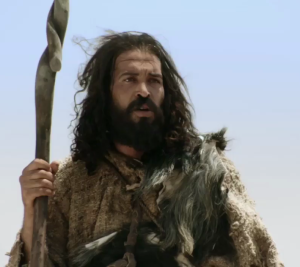 How do you respond to the truth you entered the wilderness to seek? When you read God’s word, listen to sermons, receive loving correction from a counselor or friend – do you lean toward banishment? Do you decapitate the truth to facilitate your self-delusions and maintain your comfort? Or do you kiss truth on the lips so you can awaken from your cursed sleep to pursue a deeper relationship with the One who created you?
How do you respond to the truth you entered the wilderness to seek? When you read God’s word, listen to sermons, receive loving correction from a counselor or friend – do you lean toward banishment? Do you decapitate the truth to facilitate your self-delusions and maintain your comfort? Or do you kiss truth on the lips so you can awaken from your cursed sleep to pursue a deeper relationship with the One who created you?
People who tell us the truth deliver gifts God will use to spur us on to greater adventures if we will receive them with grace. To reject the truth is to lock His work in our lives away in a cell. John was freer in prison than the king was on his throne. I was more blessed by hard truth than I would have been by false praise.
What did you go out into the wilderness to see, loved ones? And what will you do when that wild and wooly truth disturbs your comfort in the universe? The right choice will make all the difference.
The Wild and Wooly Truth http://t.co/BeHD5dQwo9 #brmcwc #hardchoices #amwriting What did you come out to the wilderness to see?
— Lori Roeleveld (@lorisroeleveld) May 19, 2015
May 15, 2015
Tempted to Give Up . . .
 Building God’s kingdom on earth sounds like an amazing adventure.
Building God’s kingdom on earth sounds like an amazing adventure.
And, it is.
It’s also heart-wrenching, back-breaking, soul-squeezing, mind-bending, endless, frustrating, gravel-chewing relentless work.
Ask anyone who does it.
The recruitment posters were glorious. Go on an adventure with God! Serve on the front lines with Jesus. This is your call to kingdom work for Christ. Find your vocation as a minister, missionary, speaker, communicator, teacher, Christian writer, business-owner, stay-at-home parent, leader, musician, artist, filmmaker, or motivator for God.
When you began, you caught the vision clearly. Your talents, spiritual gifts, and desires melded perfectly with God’s call, so you packed your dreams in His steamer trunk and boarded the train.
What you never saw coming were the hardships.
No, wait. You prepared for hardships and challenges. You knew there would be barriers.
But, you didn’t see the long stretches of fruitless, unappreciated labor. The extended periods of boredom. The criticism of the  people you set out to serve. The betrayal of teammates. The cancer, the depression, the detour your child took into addiction, the temptation, or the repeated rejection. You believed God for the promise and the vision but now He’s taken you on a side-tour of an endless season of desert.
people you set out to serve. The betrayal of teammates. The cancer, the depression, the detour your child took into addiction, the temptation, or the repeated rejection. You believed God for the promise and the vision but now He’s taken you on a side-tour of an endless season of desert.
Words like success, fruitfulness, effective ministry, full-time work, bestseller, speaking tours, conversions, revival, answered prayer, or rewarding ministry seem to be gifts bestowed on others but withheld from you. Your words appear to be set-aside, passed over, ignored, rebuked, rejected, forgotten, languishing, or unfulfilled.
That’s when Satan whispers accusations against those you came to serve, your teammates, your soulmate, your children, you, even God in his attempt to sideline you forever, to discourage you, to force you into early spiritual retirement, to disarm you, and to disable the work on your section of the kingdom wall.
In that moment of temptation, in that hour when self-pity seems like the go-to option, in those days of nurturing a spirit of complaint or lament or grumbling about the challenges of your calling and the hardship of the work of building God’s kingdom in a hostile or indifferent world, in that very moment
 Imagine you are a preacher locked in prison in China,
Imagine you are a preacher locked in prison in China,
A Christian writer sentenced to hard labor in a camp in North Korea along with your parents and your children,
A musician who loves Jesus in Syria,
A teacher of God’s Word in Nigeria wondering where the kidnappers are holding your students,
An artist sold into marriage to a terrorist and forced to serve a religion that is an enemy to the Christ in your heart.
If you believe God loves these persecuted ones. If you believe God has a plan for their lives. If you believe they are not rejected by Him. If you believe He can still work inside a prison cell, a labor camp, a country under siege, a place of terror, or even within a terrorist camp
then apply that knowledge to your work right where you are.
There are gifted preachers locked away from their flocks, shepherding from their knees, battered beyond recognition, wondering if another human will ever hear their voice again, never mind if others will be moved by a sermon they preach.
There are talented, anointed writers whose fingers are swollen and cracked from endless hard labor at tasks that have no purpose other than to numb their spirits. Writers whose Christian message resulted in their internment and not theirs alone but also their elderly parents and their children who have little hope now of realizing their own possibilities this side of glory. Writers who whisper stories in the dark to encourage their loved ones or who scratch poems onto prison walls.
other than to numb their spirits. Writers whose Christian message resulted in their internment and not theirs alone but also their elderly parents and their children who have little hope now of realizing their own possibilities this side of glory. Writers who whisper stories in the dark to encourage their loved ones or who scratch poems onto prison walls.
There are musicians who compose music no one will sing above a whisper and whose melodies will only be heard by the ever-listening ears of the Lord and the great cloud of witnesses.
There are teachers and mothers and fathers and filmmakers who neglect their gifts to devote hours to prayer and fasting for the return of their captive daughters. There are artists forbidden to practice their art and forced into serving a faith that is not their own.
Building God’s kingdom on earth is an amazing adventure but not like one imagined by Walt Disney. It is richer, deeper, more textured and layered than that. There is joy and success, yes, but there’s a war on during the construction so there is also hardship and unimaginable trial.
 When you are tempted to despair, loved ones, pause and imagine your counterpart in a land of persecution. Before you pour out your own lament, petition heaven with his or hers. Ask Jesus to encourage the imprisoned pastor, the writer in the labor camp, the musician in hiding in Syria, the teacher pleading for her students’ release in Nigeria, the artist sold into marriage to a terrorist. Ask Jesus to whisper to them that He sees them, loves them, will never forget them, and that they will someday live free forever.
When you are tempted to despair, loved ones, pause and imagine your counterpart in a land of persecution. Before you pour out your own lament, petition heaven with his or hers. Ask Jesus to encourage the imprisoned pastor, the writer in the labor camp, the musician in hiding in Syria, the teacher pleading for her students’ release in Nigeria, the artist sold into marriage to a terrorist. Ask Jesus to whisper to them that He sees them, loves them, will never forget them, and that they will someday live free forever.
Then, pour out your heart about your own work for the kingdom but not with despair, not without hope, not with the intention to give up. No, embrace every hope and ask for strength to endure for the sake of those who are persecuted, for the sake of those who still live in darkness, and for the sake of Jesus’ name on earth.
Yes, building God’s kingdom is hard but the definition of hard for some is light-years from the call of hardship for others. God placed each one of us where we are so we bear no guilt for having freedom, but we do have a responsibility for appreciating it, reveling in it, exercising it, and interceding for those who serve the Lord in chains.
If you are burdened, discouraged or tempted to despair, use Lamentations 3 as your prayer for yourself and others and always know the LORD is our portion, our inheritance, our reward and there is no greater thing!
If you are discouraged in your work for the Lord and would like prayer, let me know by commenting her or messaging me HERE If I can encourage your ministry in person by speaking for doing a workshop/retreat, reach out to me HERE. The times are hard and we need one another to speak light, truth, and love into moments of despair. Encourage someone around you today and keep at the business of furthering God’s kingdom until He comes.
Tempted to give up . . . .http://t.co/THhoephuu2 #discouraged #Jesus #amwriting #Christianwriter #ministry
— Lori Roeleveld (@lorisroeleveld) May 15, 2015
May 11, 2015
The Most Disgusting Thing You’ve Ever Heard
 Raising my second-born child to embrace life’s adventures was no easy feat. Largely, because of the warped ways my first-born introduced her to things.
Raising my second-born child to embrace life’s adventures was no easy feat. Largely, because of the warped ways my first-born introduced her to things.
No matter what I said to Hannah about new undertakings, her brother, Zack, with all of the four years he had on her on this earth, carried the most authority.
We’d been watching her brother take swim lessons for months so I didn’t expect her to stand at the edge of the pool clinging to me, crying the first time it was her turn for classes at the Y. “Honey, I don’t understand. What is there to be afraid of in the pool?”
“I don’t want them to pull out that big plug on the bottom and suck me down the drain!” she sobbed.
“There’s no plug at the bottom of the pool. That’s not going to happen. Who told you something like that?” I asked.
“Zack,” she said, looking adoringly at her older brother trying to appear obliviously innocent on the bleachers.
Eventually, she learned to love the pool so much, I decided it would be a great idea to give them a combined birthday party at the Y. Zack’s birthday is about three weeks ahead of Hannah’s, they had friends in the same families, it was winter, and one party would save us money and effort.
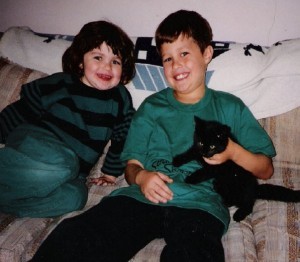
He looks so innocent here, doesn’t he?
Until the night Hannah was inconsolable.
“Honey, last week you were really excited about your birthday party! You love the pool at the Y. Why are you crying?” I asked, suspicion growing that I already knew the answer.
“You guys lied to me. You said it was my party AND Zack’s party but it’s only Zack’s,” she whimpered.
Feeling the steam rise around my collar, I asked the inevitable question, “Why do you suddenly think it’s only Zack’s party?”
“He told me it’s not a real party if it’s not AFTER your birthday or ON your birthday. Since it’s BEFORE my birthday, it’s only a real party for HIM. You guys are just trying to trick me with a fake party!”
That night I devised an ad that might convince another nice family to raise Zack to adulthood.
It was hard to be quicker than Zack or to sound more authoritative than he did, even though I’d given birth to them both, made the rules, and held the key to the cookie cupboard. I valiantly tried to Zack-proof her but somehow, he always wedged his thoughts in, sometimes when I least expected.
One day, as we sat doing schoolwork at the kitchen table, Hannah looked up and asked me where babies come from.
“Well-“ I opened my mouth to answer but Zack pushed back from the table and stood, holding up his palm against my words.
“Wait a minute. Are you about to tell her the real deal?” he asked.
“Of course,” I nodded.
“Okay, I’m out of here. Let me know when you’re through.” He grabbed his book and headed for the door, leaving me, I thought, I clear path to finally give her the straight scoop on something. Until, that is, he paused at the door and turned to her with a grimace.
 “Brace yourself,” he said dramatically, “you’re about to hear the most disgusting thing you’ve ever heard in your life.” Then he shuddered before storming out leaving Hannah, wide-eyed and terrified, waiting for me to fulfill her brother’s prophecy.
“Brace yourself,” he said dramatically, “you’re about to hear the most disgusting thing you’ve ever heard in your life.” Then he shuddered before storming out leaving Hannah, wide-eyed and terrified, waiting for me to fulfill her brother’s prophecy.
Really? That’s my set up? Thanks, son.
Beware the power of the older sibling.
I think that’s how Jesus felt about the Pharisees. Here He was, leaving His Father’s side to inhabit our humanity to give us the greatest gift, bring us the best news, communicate face-to-face with His beloved creation
but others had gotten to us first.
Big brother Pharisees had shared their version of His truth and spoken with such authority many of us doubted the very Son of God, even when He performed miracles in our very midst.
“He’s here to pull the plug on true religion,” they whispered behind His back.
“He’s eating and drinking with you but the party’s not really for you,” they said in the dark.
“He’s about to tell you the most disturbing thing you’ve ever heard about how souls come into eternal life,” they snarled, in an attempt to keep us from transferring our adoration and discipleship to Him, the One who’d created us all.
Beware the power of the older brother. Watch for him in scripture. He’s a key figure in many stories from the Old Testament to the New. Have you ever wondered why the younger sibling merits such favor in so many stories?
I think it’s a warning to those of us who have known Christ the longest. It’s easy to get in the way. It’s easy to become a problem communicating God’s truth to our younger siblings. It’s easy to misrepresent him in a way that makes them want to run screaming from their pews.
So pay attention, loved ones. Beware the power of the older brother and always keep an ear open to the whisper of the Holy Spirit to get out of God’s way when He wants to teach your younger sibling something without your interference.
If you doubt the importance of that, I’ll put you in touch with Hannah.
This video had a great impact on me this week. Mordechai Mottel Baleston tells his story of how “older siblings” set him up to be predisposed against Jesus and yet, the truth of Jesus prevailed. You can find more stories like this at I Met Messiah Have you been an older sibling who paves the way for Jesus or is Jesus shaking His head trying to stay one step ahead of you? Ask Him. He’ll let you know.
Do you have an older sibling story? Share it in the comments! If you’re looking for a speaker for your next event, contact me about “Jesus and the Beanstalk,” a talk about how we can topple giants. I’ll be teaching at Blue Ridge Mountain Christian Writers Conference next week and I’ll be speaking at Perryville Baptist Church in Rhode Island on Saturday, June 13, 1-4pm.
The Most Disgusting Thing You’ve Ever Heard http://t.co/qSkfZScz8u Beware the power of the older brother! #siblings #Pharisees #humor
— Lori Roeleveld (@lorisroeleveld) May 11, 2015
May 8, 2015
Hide Your Ugly Baby from My Mom!
 “That is one uuuuugggggly baby!” my mom would say.
“That is one uuuuugggggly baby!” my mom would say.
“Mom!”
“Well, Lori, there’s no sense lying to those poor parents. Their baby looks like E.T.”
“Okay, that’s enough.”
“Like she fell from the top of an ugly tree and hit every branch on the way down. Uh-uh-glee!”
If we were from the South, my mom would be a charming character. But, we’re not.
If your baby is on the iffy side of adorable or if you’re sensitive, best to throw a blanket over her around my mom. I like listening to the comedian Rod Man talk about homely babies. He says those are babies that are “going through changes.” He refuses large photos of his sister’s babies because they’re not “living-room babies. They’re maybe keychain or wallet babies.”
Makes me laugh.
I, of course, had beautiful babies but they each went through funky stages. Before my son’s braces, his sister referred to him as “bucky beaver boy.” Likewise, before my daughter’s heavy, curly hair grew long enough to weigh itself down, my son referred to his sister as “big head.”
Neither of them likes photos of themselves from those awkward stages when they were, as the Rod Man says, “going through changes” but when I see those photos, I just see my kiddos. I’m filled with love for those faces even with buck teeth and wild curls. I see more than faces – I see a girl with spunk and a boy with heart.
We live in an incredibly visual age. We are the most photographed generation to ever walk the planet. Life in 2015 is like facing one long mirror and that brings out our self-conscious side to a pathological degree. I’m not a fan of photos of myself but I’m  weary of the mental criticism and ego gymnastics I perform whenever I see a new image of me so I’ve decided to get over myself.
weary of the mental criticism and ego gymnastics I perform whenever I see a new image of me so I’ve decided to get over myself.
It’s pretty freeing. That’s me – flattering, unflattering, awkward angle, bad lighting – whatever. Other people see me all the time. The only person dismayed by my image is me.
It occurred to me that God knows exactly what I look like. When He looks at me, He’s not assessing my extra pounds, my boring shoes, my flat hair, or my lack of lipstick. In fact, I understand deeply what the Lord sees when He looks at me because I know what I see when I look at photos of my children or others I love. It’s similar except that God’s view goes even further than mine.
The Bible says this about God’s view: “But the Lord said to Samuel, “Do not look on his appearance or on the height of his stature, because I have rejected him. For the Lord sees not as man sees: man looks on the outward appearance, but the Lord looks on the heart.” I Samuel 16:7
God looks on me with eyes that see my deeper beauty (or lack of it).
2 Chronicles 16:9a says, “For the eyes of the Lord run to and fro throughout the whole earth, to give strong support to those whose heart is blameless toward him.”
Like superhero x-ray vision, God’s eyes pierce the surface to see into our souls. He sees a 360 of our souls and if we follow Jesus, He filters us through that cleansing lens.
My boy is like other boys, I suppose, when he’s far from home we get scant information from him. So, when he spent a year in Mississippi, I loved when one of the young women working on his Americorps team would tag him in photos on Facebook. I’d scan the photo of him looking – not at his appearance – but searching for signs of his heart. Was he well? Was he behaving? Was he happy? Was he at peace?
This is God’s eye on us. As we squirm through our personal discomfort with photographs or videos of ourselves, it can help to remember that God’s focus is on the snapshot of our souls. That’s our face. That’s our body. Move on. Don’t waste time on what will pass.
Invest less spirit in that will be returned to the earth. Instead, invest in what will rise, that which captures God’s attention, a heart, a soul made beautiful by loving Him.
 Happy Mother’s Day to my beautiful, witty, smart, funny, godly, ever-loving mom! Isn’t she beautiful? I know that’s what God sees.
Happy Mother’s Day to my beautiful, witty, smart, funny, godly, ever-loving mom! Isn’t she beautiful? I know that’s what God sees.
To every woman who reads this blog, Happy Mother’s Day! So many of you, whether you have children or not, nurture and care for others. Jesus sees you and celebrates you whether you’ve given birth to twelve children or you’ve invested in other people’s children or even if you’ve just made the planet a better place for the next generation. Happy mother’s day to you all. Here are the faces I love every day – my family!
Hide Your Ugly Baby from My Mom! http://t.co/KN42z7rPkb #MothersDay #MothersDayWeekend #mothers
— Lori Roeleveld (@lorisroeleveld) May 8, 2015
May 5, 2015
The Posing Parallel Wolf Church
 Why love our enemies? Seriously. What. Is. the. Point?
Why love our enemies? Seriously. What. Is. the. Point?
Jesus was here with us. He could see how badly we managed to love even those closest to us, even those we invite into our lives, our homes, our beds. Truly, we stank at love long before the J. Geils Band set it to music and made us dance to our own pathetic failing.
We struggle to love long-term the very objects of our devotion so why, of all impossible things, command us to love our enemies?
Perhaps because He knew how confusing things would get down here.
Jesus was preaching to His followers when He gave the command to love our enemies and to pray for those who persecute you. His followers. His children. His church.
Even though, at the time, many thought it would be comprised of only Jews, Jesus knew His church would include people from every tribe, every tongue, and every nation on earth. So when He was referring to our enemies and persecutors, He foresaw a time when it wouldn’t be easy to determine who that enemy is.
I heard a vet talk about the confusion of battle once. He spoke in deep, textured tones about the chaos of combat in the dark in the jungle with gunshots and grenades blaring every which way. Smoke and dirt and sweat streaming into your eyes. A soldier gets turned round and the foliage or the clouds hide the moon and stars. Your ears tune into your own breathing, your own heartbeat but your brain doesn’t process incoming information with the efficiency you need as fast as you need it. It’s simple as trigger click to confuse comrades for combatants. Easy to shoot a friend and not even realize until morning that the hand on your shoulder wasn’t an attack but an attempted rescue.
I nodded because I know about this. Not the grenades. Not the Glocks. But the mess of battle when friends fall in the line of fire from my own drawn weapon. I’ve experienced this in the family of God
and it’s getting worse.
That’s one of the creepiest aspects, for me, of the times in which we live. The fact of this parallel church, this counterfeit, this collection of Christian look-alikes, sound-alikes, posers who pull off the greatest identity theft of all times in order to confuse even the brethren, if that was possible.
 You know what I’m talking about. I’m talking about “those” Christians. The ones who don’t even seem to be reading the same Bible I read or who don’t read the Bible at all. They appear in interviews on the History channel as Biblical scholars or experts on my faith and proceed to deconstruct its basic tenets and tell everyone it’s still there. The rabbit out of the hat, wink-wink-nod-nod at the world, let’s not be fanatics about doctrine, no one can really know the original Greek on that verse people who identify by my family name but would turn me away if I showed up at their church doorstep on a cold night because of my archaic views.
You know what I’m talking about. I’m talking about “those” Christians. The ones who don’t even seem to be reading the same Bible I read or who don’t read the Bible at all. They appear in interviews on the History channel as Biblical scholars or experts on my faith and proceed to deconstruct its basic tenets and tell everyone it’s still there. The rabbit out of the hat, wink-wink-nod-nod at the world, let’s not be fanatics about doctrine, no one can really know the original Greek on that verse people who identify by my family name but would turn me away if I showed up at their church doorstep on a cold night because of my archaic views.
These are dangerous times.
There are six hundred sixty-six times as many molecules of deception as oxygen molecules in the air (maybe more) clouding our vision and our frontal lobes. It would be a fool’s pursuit for me to start deciding who’s a “real” believer and who has wrapped his or her wolf-soul in sheepskin. I might mistake the rescuing hand of a friend for the attack of a foe and take out a sister or brother.
God knew how things would get down here. He issued us swords and shields, not winnowing forks and threshers. (Farm tools for sorting things out.) And just to be clear about how to conduct ourselves, He told us to love every heart that beats. Every. One. Friend and Foe. Family and Enemy.
Simplifies it for us.
In this battle, when we reach into our ammo pack, we curl our fingers around love. Love for the poser. Love for the liberal brother. Love for the fundamentalist sister. Love for the one pretending to be family who isn’t.
We definitely continue to speak the truth. We stand for what the Bible teaches even when others say it doesn’t. We hold our spiritual ground and advance the kingdom praying, teaching, making disciples, and speaking light into darkness.
But we don’t hate. We don’t condemn. We don’t accuse. We don’t sort wheat from tares. We love – with words, with deeds, with truth, with a supernatural infilling of the Holy Spirit enabling restraint when we’d prefer to fire against the darkness with real bullets.
The parallel church, the fake church, the wolf church, the false teaching – it scares me, too. But love casts out fear and advances the kingdom. If the enemy takes me out, I’ll go down loving and knowing the truth, in the name of Jesus Christ.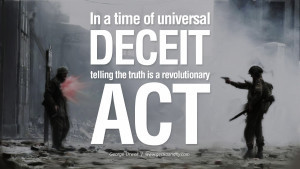
I choose love and the revolution of truth. How about you?
I’ve added a new talk to my workshops that I’m very excited about called Jesus and the Beanstalk (Our Faith is No Fairy Tale) about how to be effective and fruitful in our faith. Are you ready to topple giants? Contact me to speak with your group.
The Posing Parallel Wolf Church, what’s the proper response? http://t.co/qPADVVJdZT #falseteaching #fakeChristians #posers #loveyourenemy
— Lori Roeleveld (@lorisroeleveld) May 6, 2015
May 3, 2015
What Do You Get When You Interrupt Jesus?
 Interruptions used to make me crazy.
Interruptions used to make me crazy.
I like to feel, every day, that I’ve “accomplished something.” Interruptions interfere with that sense of accomplishment.
Modern life management advice is geared around goal setting. Know what you want to achieve. Set goals. Create objectives. Avoid distractions. Minimize interruptions. Accomplish goals. Enjoy success.
Sounds like a beautiful plan.
In fact, some people advise determining five-year plans. This has become the rage not only for individuals but also for churches and ministries. And, for the most part, I agree that goal-setting is worthwhile.
But, while listening to the audio version of the gospels in my car, I’ve been struck with how many of the stories the gospel writers tell about Jesus revolve around interruptions.
I can’t imagine anyone accusing Jesus of not being goal-oriented but His days don’t read like someone “trying to accomplish something.” Most of the great stories we know of His life appear to result from interruptions.
accomplish something.” Most of the great stories we know of His life appear to result from interruptions.
Jesus was enjoying a wedding in Capernaum when His mom interrupted Him with their wine-shortage problem. His first miracle was in response to an interruption. A Pharisee named Nicodemus sought Jesus out after dark, interrupting whatever other plans Jesus had, to learn that he must be born again.
On the way to Galilee, Jesus paused at a well and asked a Samaritan woman for a drink. She asked Him questions and an interruption became an open door for the Samaritans to the gospel. On His way to heal Jairus’ daughter, a woman who had been bleeding for twelve years interrupted Jesus. He not only healed her, He took the time to stop and speak with her.
A sinful woman interrupted during a Pharisee hosted meal for Jesus to wash His feet with her tears, anoint them with perfume, and put her love for Him on display. Jesus announced that her story would be remembered always.
The gospels are rife with interruptions and you have to believe that Jesus’ original agenda for every day was never anything banal or useless to begin with but still, He never blinked at an interruption.
We know Jesus made a habit of rising early to pray and we know He traveled the countryside preaching and healing. We know He was in great demand but He greeted interruptions as opportunities, trusting them as divine appointments.
 Looking at even more Biblical stories through this lens, we find God is constantly interrupting someone’s life with His own plans for them.
Looking at even more Biblical stories through this lens, we find God is constantly interrupting someone’s life with His own plans for them.
He interrupted Moses with a burning bush. He interrupted Joseph with time in a pit and a prison. He interrupted Esther when she was taken for the king’s harem. Mary and Joseph, He interrupted in their plans to marry and enjoy a simple life. He interrupted Paul on the way to Damascus.
None of them had five-year plans for their ministries or even their lives. Many of them did make paying attention to God their daily goal.
Here’s the take-away for me: My chief goal in life is to make myself available to God every day – to show up before Him in prayer, in study of His word, in obedience, and in listening to His Holy Spirit.
So then, I can trust that what I see as interruptions are divine appointments.
I believe I should work toward the “greater goals” I’ve prayerfully developed but with an awareness that God is in the NOW. He IS in this moment and if I want to be with Him, I must be HERE, not pressing on to the next moment while He lingers with a soul in need of Christ. It seems pretty wrong to tap my toe impatiently while Jesus chats with someone who 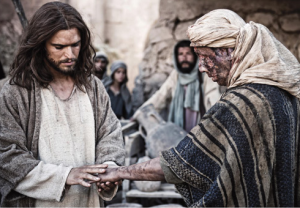 is interrupting my progress toward my goals.
is interrupting my progress toward my goals.
Jesus drove the disciples a little crazy with His constant attention to interruptions. I’m right there with them. Drives me nuts, too. That’s because I want my life to “look like something.” But, making my life “look like something” doesn’t even show up on Jesus’ to-do list.
What would happen if tomorrow you asked God to open your eyes to the opportunities in the interruptions? I’ve been doing that more and more – releasing my need to “feel accomplished” and making myself available to God in the moment.
J.R.R. Tolkien wrote, “Not all those who wander are lost.” I have to believe that not all those who are interrupted are off-task.
Try it right now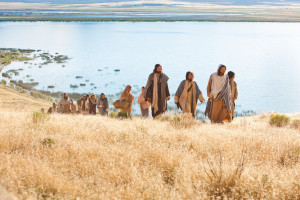 . Embrace the interruptions. Not sold yet? Read one of the gospels and count the times a story is based on an interruption in Jesus’ day. Explore the freedom of the ministry of interruptions. Dare to be like Jesus and put your day into the hands of the Master.
. Embrace the interruptions. Not sold yet? Read one of the gospels and count the times a story is based on an interruption in Jesus’ day. Explore the freedom of the ministry of interruptions. Dare to be like Jesus and put your day into the hands of the Master.
What do you get w hen you interrupt Jesus?
A divine appointment, a glimpse of God, the hands, feet, and heart of the gospel, the kingdom of God here and now.
The Westerly Sun has a fun interview about my book and photos of my favorite writing spot this week in The Easy Chair. I’ve also just added a new workshop to my speaking list – “Jesus and the Beanstalk – our faith is no fairy tale.” Visit my speaking page and contact me to speak at your next event!
What do you get when you interrupt Jesus? http://t.co/yt6uQQeMv0 #liveinthenow #amwriting #Jesusisherenow #Jesus
— Lori Roeleveld (@lorisroeleveld) May 3, 2015



